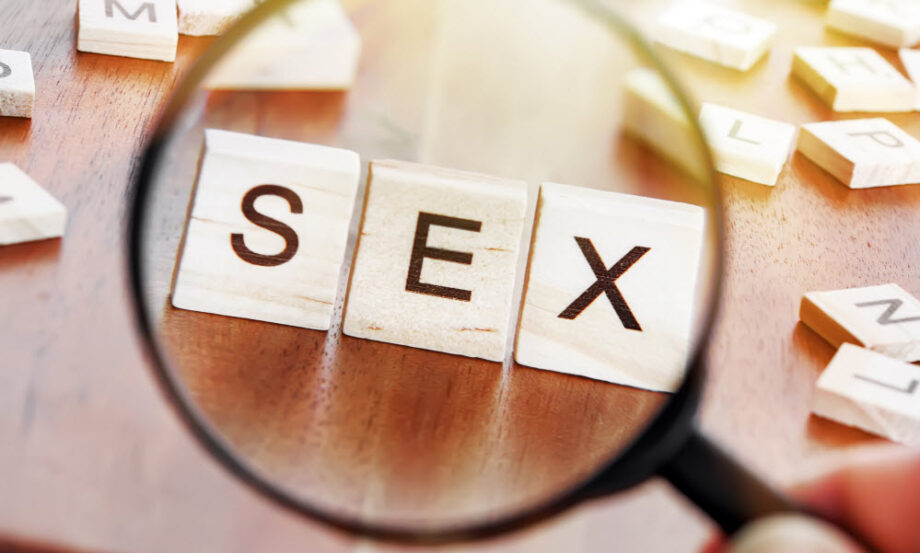The more of it I read, the more I am fascinated with sex research. It takes courage to be a sex researcher: you need to convince people to participate - and convince funding agencies to help pay for it all. Because sex is still such a big taboo, both these things are more difficult than it seems. I'm fairly lucky to live in Canada, where sex research is thriving.
As we prepare for a new year of sex research, here are some of the more interesting findings from sex research in 2017.
Women talk about genital touching and pleasure
OMGYES is a fairly popular educational website about women's sexuality and pleasure. But what you may not know is that the research on which the website is based has actually been published in August 2017 in the Journal of Sex and Marital Therapy.
This research is the first to focus on the different ways that women enjoy genital touching. The researchers identified four dimensions of genital pleasure: location, pressure, shape and pattern. The women surveyed also mentioned how PiV sex without clitoral stimulation rarely leads to orgasm. More precisely, for a majority of women, clitoral stimulation was either necessary for an orgasm, or made their orgasms feel better.
Read: How to Charm a Clitoris
Men think women climax more often than they really do
The "orgasm gap" was a big topic in sex writing this year. Women are apparently having much fewer orgasms than men during partnered sexual activity.
In October, an article published in the Archives of Sexual Behavior reported on one possible reason for this: the way we ask the question might matter just as much as the answer.
Still, even considering how the question is asked, this research showed that men overestimate how often women have orgasms. While women say they have orgasms 21-30% of the time during sex without clitoral stimulation and 51-60% of the time with clitoral stimulation, the men in the study said women had orgasms 41-50% of the time without and 61-70% of the time with clitoral stimulation.
Men overestimate how often women have orgasms, especially during intercourse without clitoral stimulation. It's about time men start to learn how women really experience pleasure and orgasm.
Bisexuals face higher risks of mental illness
Although it's been hinted at over the years that bisexuals have higher levels of depression than either heterosexuals or gays and lesbians, only a handful of studies have looked at this kind of data. But a meta-analysis (looking at the data of several studies together to look at overall trends) of bisexuality and mental illness research suggests that this is a consistent and common reality for bisexuals.
This meta-analysis, published in the Journal of Sex Research, looked at the data from 52 research studies and concluded that bisexuals have significantly worse mental health than heterosexuals, and equal or worse mental health than gays and lesbians. Although being bisexual does not necessarily mean you'll face depression or anxiety, bisexuals have a higher risk than pretty much everyone else.
This sucks for bisexuals, but it also encourages us to find ways for bisexuals to feel more accepted and visible both in queer and general cultures.
Porn users like MILFs, anal sex and lesbians
PornHub is arguably the web's No.1 pornography portal, and the information they have on our sexual desires is definitely worth paying attention to. Aside from launching a sexual wellness portal in response to the lack of good sexual education in North America (yay!), they also published a report on 10 years of data collected over the lifetime of the site.
Lesbians is apparently the No.1 category of all time. MILFs follows closely at No.2; anal comes in at No.7. Porn users apparently find lesbians arousing, as this category topped all others in 2015, 2016 and 2017.
Pornography both reflects and influences our sex lives. PornHub data can tell us a lot about sex trends from year to year.
Computers are better at identifying sexual orientation through faces alone
Sex research is not without controversies. One of the biggest in the field this year was a finding that computers could identify gay people with 81% accuracy, and lesbians with 74% accuracy. In other words, a computer does a much better job at this than humans, who perform at 61% and 54%.
This project rightfully raised some concerns from the LGBTQ community: if computers can identify sexual orientations from face pictures alone, there's quite a risk that people with bad intentions might use that information to further discriminate against them. But the research also contributes to the biological argument for sexual orientation: if the faces of gays and lesbians are different than those of heterosexuals, then sexual orientation is less likely a choice and much more likely something innate.




